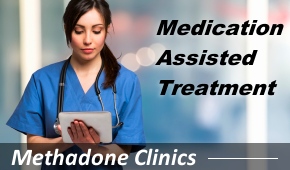 When it comes to addiction, reactions and opinions are often intense. Addiction is a devastating illness that can rapidly derail a person’s life, and seriously impact the lives of those around them.
When it comes to addiction, reactions and opinions are often intense. Addiction is a devastating illness that can rapidly derail a person’s life, and seriously impact the lives of those around them.
Sadly, addiction leads people to behave in ways that make no sense to their family, friends, and co-workers. Therein lies an important part of the problem. Family feel confused, angry, and fearful as their loved one tumbles down the hill of active addiction.
When it comes to something as perplexing as drug addiction, grasping for answers is an understandable reflex for family and friends. What family often don’t comprehend is the power of physical dependency to opioids and the severe sickness that results from opioid withdrawal.
Family and others incorrectly assume that mere “choice” is all that’s needed to overcome the addiction. When the addict fails to remain drug free, harsh judgment by others usually follows.
Halting withdrawal sickness is a paramount step for an opioid addicted person. This cannot be overstated. As long as a person is suffering from severe opioid withdrawal, their ability to think and “choose” logically is greatly impaired.
Statistically, individuals who utilize medication-assisted treatment (like methadone) are far more likely to avoid incarceration, a continued downward spiral, or death by overdose. Medication assistance successfully removes debilitating withdrawal sickness so that the addicted person can experience greater clarity of thought and the ability to make more sound decisions that lead to improved quality of life.
If you are a skeptic about methadone or suboxone, you may think “they’re just trading one drug for another”. This is not true. People, once therapeutically stabilized on methadone or suboxone, do not get high from the medication. Health generally improves, and the person is able to function much better on the job and at home. This brings hope. It offers a new opportunity for further recovery.
When you care about a person’s survival, one more chance to help them can be quite valuable. Don’t let judgment or excessive skepticism get in the way. Medication-assistance in opioid recovery is effective for many people, and it has been the life saving next step that some never got the chance to take.

 The faces of recovery are as diverse as you can imagine. Decades ago, there were common stereotypes of addicts as people who looked a certain way and likely came from a shady side of the tracks.
The faces of recovery are as diverse as you can imagine. Decades ago, there were common stereotypes of addicts as people who looked a certain way and likely came from a shady side of the tracks. There are currently well over 1000 methadone clinics in operation across the United States and many more throughout the world. Methadone has been a leading treatment intervention for opioid addiction for more than 40 years. Methadone is an FDA-approved medication and it’s use in treating opioid addiction has been identified by SAMHSA as a best practice, evidence-based treatment approach.
There are currently well over 1000 methadone clinics in operation across the United States and many more throughout the world. Methadone has been a leading treatment intervention for opioid addiction for more than 40 years. Methadone is an FDA-approved medication and it’s use in treating opioid addiction has been identified by SAMHSA as a best practice, evidence-based treatment approach. Further validating the merits of opioid treatment using methadone is a
Further validating the merits of opioid treatment using methadone is a 


